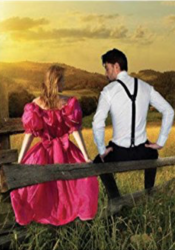Romanticism
Romanticism was a movement that swept through the arts from 1800-1890. It deeply effected all aspects of society, including fine art, literature, music and more. This movement is thought to have been part of a reaction to the Industrial Revolution, as romanticism also impacted the thoughts of the individual, politics, and sciences. A German painter, Caspar David Friedrich, summarized romanticism as, "the artist's feeling is his law". Romanticism placed significance on emotion and nature.
Romanticism is significant to Middlemarch as another sign and hallmark of the post-industrial revolution world that the book takes place in. As the book continues, signs of the revolution, such as the Rocket, permeate the character's lives and impact their futures. The era of Romanticism effects their dress, the future of politcs in their town, and even the art they see. In chapter 19, romanticism is described as a budding movement that the honeymooners, Mr. and Mrs. Cassaubon encounter in their travels through Rome. Romanticism had started to impact the German artists they encountered in Rome and, "the youth of other nations who worked or idled near them were sometimes caught in the spreading movement." This seems reflected in the remainder of their activities in Rome, the landscape, and the art they encounter.
Eliot, G. (2015). Chapter 19. In Middlemarch: A study of provincial life(p. 156). New York: Penguin Books.
Wikipedia contributors. (2020, August 31). Romanticism. In Wikipedia, The Free Encyclopedia. Retrieved 19:33, September 7, 2020, from https://en.wikipedia.org/w/index.php?title=Romanticism&oldid=975905062

